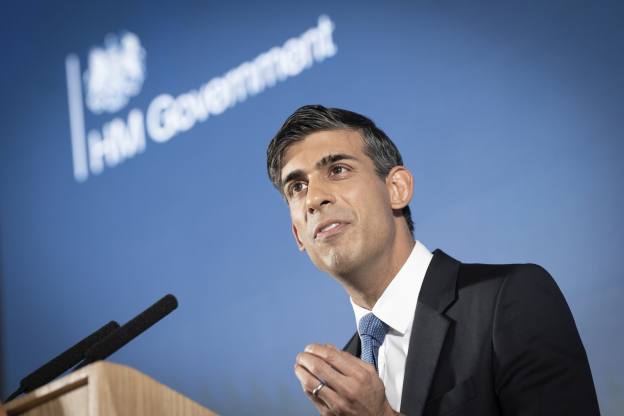
Sunak's extra maths will not help teens, but better financial literacy lessons will

Speaking at Queen Elizabeth Olympic Park in east London, Sunak noted how just half of all 16 to 19-year-olds study any maths at all.
He said he wanted the public to “feel confident” with their finances and warned how jobs of today require more analytical skills than before.

While I wholeheartedly support the idea that education is at the root of strengthening our country, and therefore our economy, I cannot help but feel this is something of a red herring when it comes to enabling people to get a better understanding of their finances.
A cliché but very true reality for most people is that they have not used maths since leaving school, beyond the basics that help you to budget or perhaps work out just how much that percentage-off deal will get you in the shops.
After all, I am certainly not using vectors or sin, cos and tan when doing the Tesco shop or looking up mortgage deals. In fact, I struggle to think of any elaborate formula or theorem in which I was tested on in school that I have managed to apply to my daily life.
This is not to say maths is not important, and certainly there are some professions that regularly apply this level of in-depth knowledge, which is why they require A-level maths or some equivalent, but for the rest of us an extra two years of Pythagoras’ theorem is hardly helpful.
This lack of application coupled with the public’s lack of confidence in their financial literacy is definite cause for concern. Figures from the Money & Pensions Service’s Financial Capability Survey found 39 per cent of adults (20.3mn) do not feel confident managing their money. However, the answer is not more ‘useless’ maths.
Focus on finances
Financial literacy programmes covering topics like budgeting, taxes, savings products, pensions and other real-world hurdles young people will come across are a far better application of numeracy skills that will go beyond the classroom and stay with them throughout their lives.
While in England financial education is included in the national curriculum for secondary schools as part of citizenship and maths, it does not go far enough to assuage young people’s concerns over their lack of financial understanding.
Indeed, anxiety in young people about finance increased to 81 per cent in 2022 from 67 per cent 2021, according to The London Institute of Banking & Finance’s Young Persons’ Money Index, with 72 per cent of respondents saying they want to learn more about money in school – this rises to 85 per cent among 17 to 18-year-olds.
Sunak’s idea of extra maths for 16 to 19-year-olds is misplaced; there should instead be greater focus on improving and expanding the financial literacy lessons offered throughout secondary education, with perhaps more intense programmes provided for ages 16 to 19.
How schools deliver this information is just as important as how often it is offered – the material must be relevant and engaging. As part of this strategy to improve financial education, the government should provide more detail as to how it expects schools to deliver these programmes.
LIBF’s index survey found 25 per cent of respondents say they are self-taught – up 12 per cent on last year – indicating the current provision is not resonating with a worryingly large number of students.
On implementing and enhancing a school’s financial education offering, Maps suggests auditing existing provision and assessing students’ knowledge; gathering input from the students and teachers themselves; and having a financial education lead.
The LIBF’s index revealed the most popular subjects for delivering financial education are still personal social health and economic education, and citizenship, with maths only just catching up last year.
It is apparent to me that financial education is best served outside of the typical maths curriculum – a curriculum that is notoriously disliked and considered difficult amongst students, often giving a negative association with ‘numbers’ and putting people off bettering their education in matters like personal finance.
Improving schools’ financial education offerings to create an enhanced, engaging and hopefully fun curriculum will vastly strengthen students’ financial literacy, boosting their confidence and giving them the tools they need to navigate financial products and services and a world in which, as Sunak said, “data is everywhere”.
Dionne Gibb is a production editor at FTAdviser




